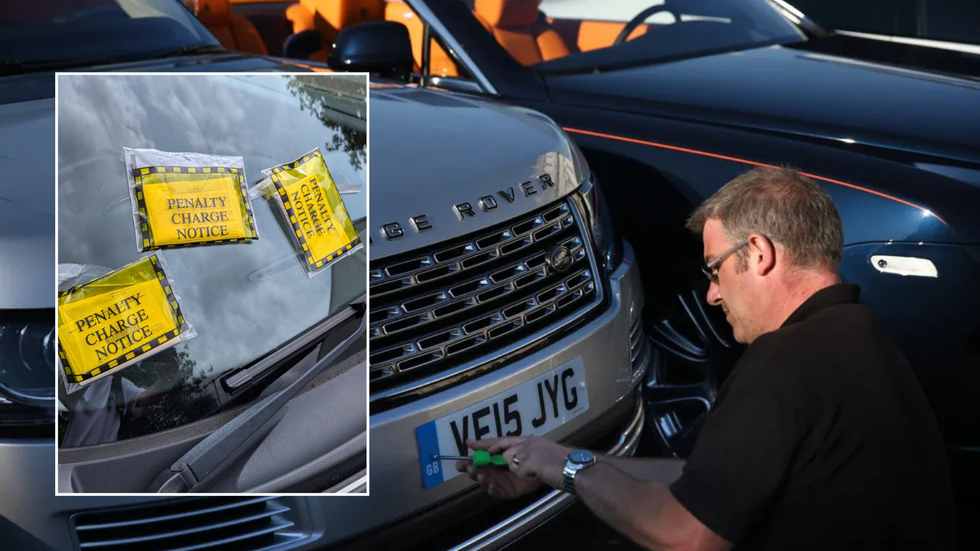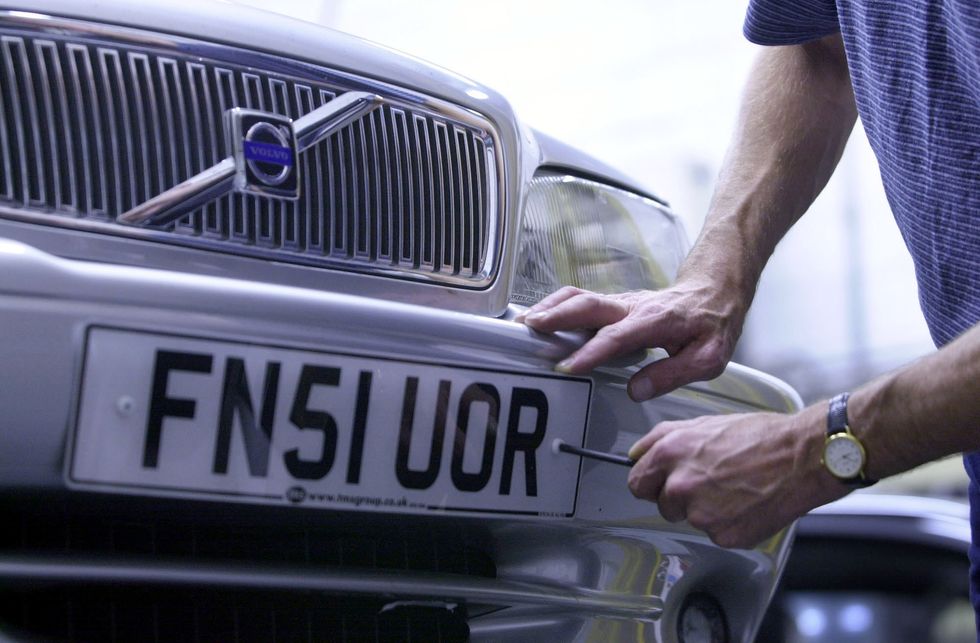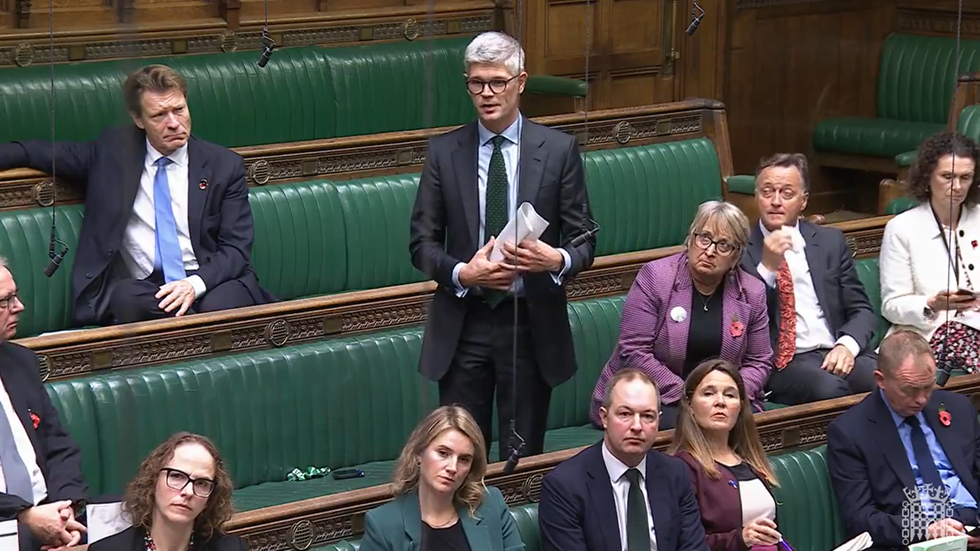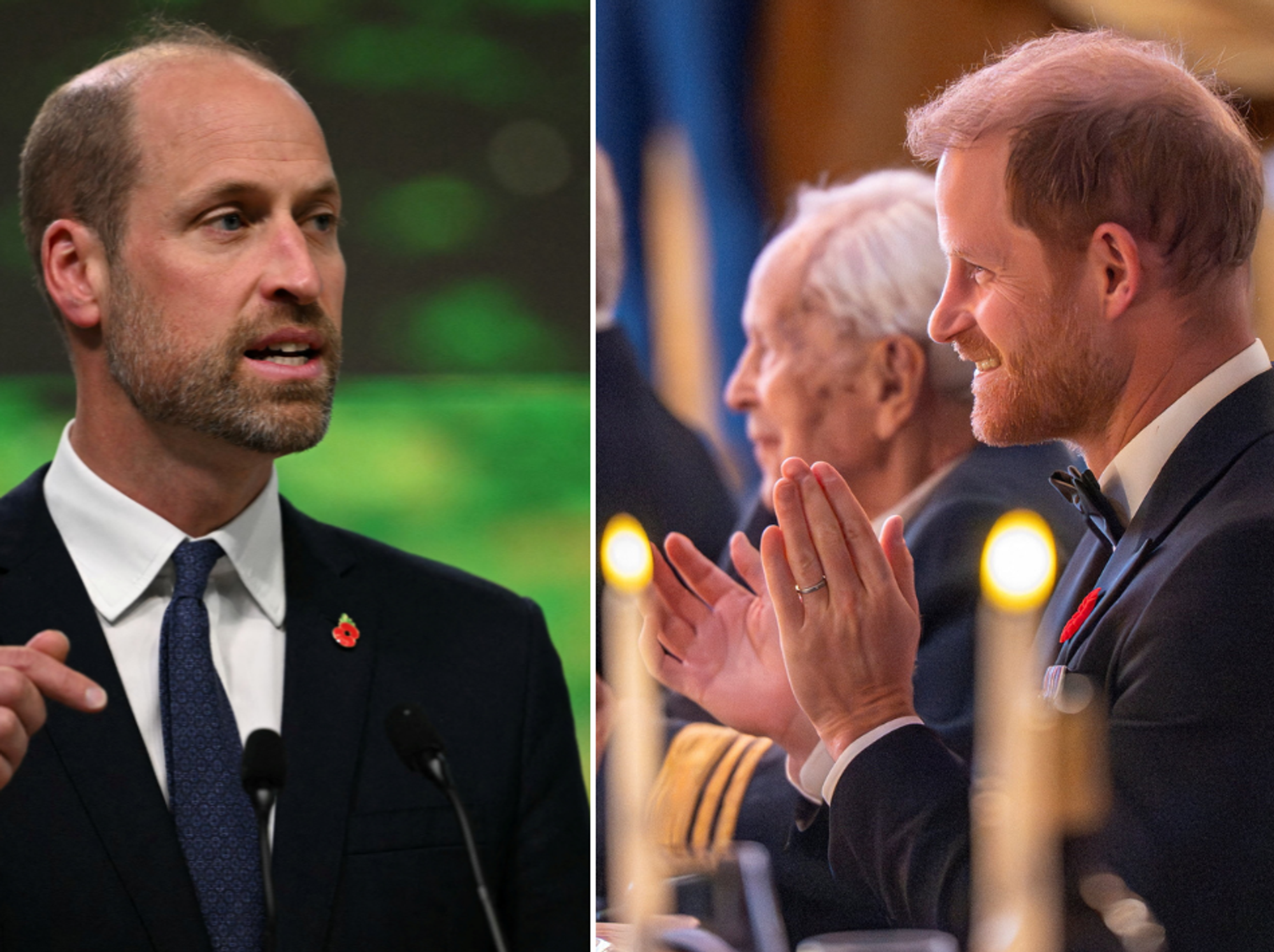Motorists could face new driving laws for road offences under 'robust' new proposals

Cloned number plate cases have increased by 40 per cent in the past year
Don't Miss
Most Read
Drivers have been warned of a spike in major road offences, which could see motorists hit with fines and parking charges.
Number plate cloning has been spreading across the UK, with experts now warning of a 41 per cent rise from last year, prompting urgent Parliamentary action.
The offence sees drivers unknowingly having their vehicle registration plates placed onto other cars for fraudulent or anti-social reasons.
The cloned plates are then used by criminals to commit offences, including running red lights, illegal parking, speeding, or even robbery.
TRENDING
Stories
Videos
Your Say
Offenders have primarily targeted vehicles with no previous offences, speeding fines, or parking tickets, with unsuspecting drivers being put at risk of breaking the law.
Mike Thompson, COO at Leasing Options, said: "Usually, victims of number plate cloning don't know their number plate has been duplicated until they receive a ticket or fine for an offence that they didn't commit, by which point you must go through the lengthy process of reporting the crime.
"While there's no guaranteed way to prevent number plate cloning, drivers can take several precautions to minimise the risk."
Growing concern over number plate cloning has now resulted in MPs acting with a Westminster debate held last week, hoping to result in tougher action.

Labour announced plans to include tougher rules on cloned number plates in the road safety strategy
|GETTY
During the debate, Al Pinkerton, Liberal Democrat MP for Surrey Heath, warned that while number plates should be the cornerstone of road safety, "they have become a point of vulnerability" by being easily cloned, exploited and poorly protected.
He said: "When Automatic Recognition Number Plate cameras fail or are undermined by cloning or ghosting, that is not a minor inconvenience but a failure of public protection.
"The Government should legislate for tighter registration controls, stronger supply verification and a digital audit trail to prevent tracing and cloning."
In response, Transport Minister Simon Lightwood shared that the safety of all road users is a top priority for the Government.
LATEST DEVELOPMENTS:
 Drivers should report suspected cloned plates to the police and the DVLA | PA
Drivers should report suspected cloned plates to the police and the DVLA | PAHe explained that, as part of the upcoming road safety strategy, the Government has been considering a range of policies relating to motoring offences, with the measures to be set out in "due course".
"Officials are also considering options to ensure we have a more robust, auditable register of number plate suppliers' processes, which would enable tighter checks on number plate suppliers," he added.
The Transport Minister noted that on-road enforcement for offences relating to the display of plates is "a matter for the police".
In a bid to help drivers avoid being victims of number plate cloning, Mr Thompson suggested that drivers avoid posting pictures of vehicles online.

The Liberal Democrat MP called on the Government to tackle number plate cloning
|PARLIAMENT UK
He warned that many criminals use social media to find number plates, "so ensuring you don't post your vehicle on the internet or social media is a great way to remove yourself from being a target of theft."
Another preventive measure is parking in well-lit areas or in security-protected car parks, which can reduce the risk of criminals accessing number plate details.
Drivers should also ensure they purchase and install anti-theft screws and a number plate protector, which can help prevent number plates from being physically removed.
"If you do become aware that your number plate has been cloned, report it to the police immediately and try to provide proof that you were in a different location to any offences committed under your identity," Mr Thompson shared.










